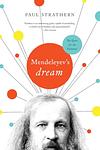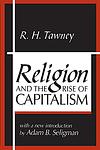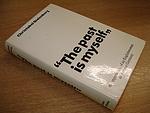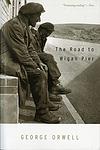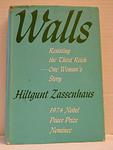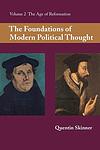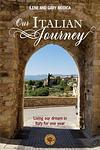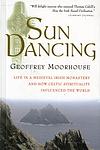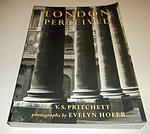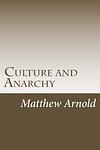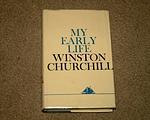The Greatest German, British "European History" Books of All Time
Click to learn how this list is calculated.
This list represents a comprehensive and trusted collection of the greatest books. Developed through a specialized algorithm, it brings together 305 'best of' book lists to form a definitive guide to the world's most acclaimed books. For those interested in how these books are chosen, additional details can be found on the rankings page.
Genres
European History is a category of books that focuses on the historical events, people, and cultures of Europe. It covers a wide range of topics, including the ancient civilizations of Greece and Rome, the Middle Ages, the Renaissance, the Enlightenment, and the modern era. This category of books explores the political, social, economic, and cultural developments that have shaped Europe over the centuries, from the rise and fall of empires to the impact of wars and revolutions. It provides readers with a deeper understanding of the rich and complex history of Europe and its influence on the world.
Countries
Date Range
Reading Statistics
Click the button below to see how many of these books you've read!
Download
If you're interested in downloading this list as a CSV file for use in a spreadsheet application, you can easily do so by clicking the button below. Please note that to ensure a manageable file size and faster download, the CSV will include details for only the first 500 books.
Download-
26. Mendeleyev's Dream by Paul Strathern
This book traces the history of chemistry from the ancient philosophers' wild speculations about the composition of the universe to the creation of the periodic table by Dmitri Mendeleyev. Through a blend of storytelling and science, it explores the development of atomic theory and chemical elements, leading up to Mendeleyev's groundbreaking dream in which he envisioned the periodic table in its modern form. The narrative delves into the lives and discoveries of key figures in the field of chemistry, illustrating how their work contributed to our understanding of the elements that make up the world around us.
The 3416th Greatest Book of All Time -
27. Religion And The Rise Of Capitalism by R. H. Tawney
"Religion and the Rise of Capitalism" is a comprehensive exploration of the historical relationship between the development of capitalism and the evolution of religious thought, particularly Protestant Christianity. The author delves into the moral and ethical dimensions of capitalism, arguing that its growth was significantly influenced by certain religious ideas. The book also discusses how religious beliefs have shaped economic systems and societal norms, and how these, in turn, have impacted religion.
The 3437th Greatest Book of All Time -
28. Mary Queen Of Scots by Antonia Fraser
This historical biography delves into the tumultuous life of a sixteenth-century queen who became a figure of romantic tragedy. Born into a world of political intrigue, she ascended to the Scottish throne as an infant and was later married to the French Dauphin, becoming queen consort of France. Her reign was marked by a series of ill-fated marriages, complex political maneuvers, and religious upheaval. Ultimately, she was imprisoned and executed by her cousin, the Queen of England, after being implicated in a plot to claim the English crown. The book provides a detailed examination of her life, the challenges she faced, and her enduring legacy in history.
The 3462nd Greatest Book of All Time -
29. The Past Is Myself by Christabel Bielenberg
"The Past Is Myself" is a memoir of an Englishwoman who married a German lawyer and lived through the Second World War in Nazi Germany. The book provides a personal account of the challenges and moral dilemmas she faced during this tumultuous period, offering a unique perspective on life under the Third Reich. Her narrative captures the fear, courage, and resilience of ordinary people caught in the grip of a totalitarian regime, as well as her own journey of adapting to a foreign culture and confronting the horrors of war and oppression. The author's experiences highlight the complexities of identity, loyalty, and survival in a time of pervasive political terror.
The 3462nd Greatest Book of All Time -
30. The Road to Wigan Pier by George Orwell
This book is a sociological exploration of the bleak living conditions among the working class in Lancashire and Yorkshire, England, in the 1930s. The author, who lived among the people, vividly describes the hardships of the poor and criticizes the systems that make them so. The latter part of the book presents a discussion on class and possible socialist solutions to the issues presented in the first part. It's a powerful critique of British society at the time and a call for better conditions for the working class.
The 3462nd Greatest Book of All Time -
31. Walls: Resisting The Third Reich by Hiltgunt Zassenhaus
"Walls: Resisting The Third Reich" is a powerful memoir of courage and defiance, recounting the experiences of a young German woman during World War II who risked her life to oppose the Nazi regime. Working as an interpreter in the German courts, she secretly aided Scandinavian prisoners of war, passing along messages and providing them with hope and support. Her clandestine activities, carried out under the constant threat of discovery and execution, showcase the profound bravery and moral conviction required to resist oppression from within the very heart of a totalitarian state. The narrative not only captures the personal struggle against tyranny but also serves as a testament to the human spirit's capacity for resistance and solidarity in the face of overwhelming adversity.
The 3462nd Greatest Book of All Time -
32. Armenian Atrocities: The Murder of a Nation by Arnold J. Toynbee
This book provides a comprehensive historical account of the Armenian genocide that took place during World War I. The author meticulously documents the systematic extermination of the Armenian people by the Ottoman Empire, using a variety of sources including eyewitness accounts, diplomatic reports, and official documents. The book also explores the international response to the genocide and the subsequent denial and cover-up by the Turkish government.
The 3462nd Greatest Book of All Time -
33. Russian Thinkers by Isaiah Berlin
The book is a collection of essays exploring the ideas of key 19th-century Russian intellectuals who shaped the social, political, and cultural contours of their time. It delves into the works and impact of thinkers such as Alexander Herzen, Ivan Turgenev, and Leo Tolstoy, examining their contributions to debates on Russian identity, the role of the intelligentsia, and the future of their nation. The author critically analyzes the ideological conflicts between Westernizers and Slavophiles and the struggle to reconcile Western European liberal thought with uniquely Russian conditions, offering insights into the philosophical underpinnings of Russia's historical trajectory.
The 3613th Greatest Book of All Time -
34. The Foundations Of Modern Political Thought by Quentin Skinner
This book is a seminal work in intellectual history, offering a comprehensive analysis of the development of political thought during the Renaissance and the Reformation. The author meticulously examines the evolution of key political concepts and the context in which they arose, tracing the transition from medieval to early modern political theory. The text delves into the writings of influential thinkers and the impact of their ideas on the structure of government and the nature of individual rights, ultimately providing a detailed understanding of the origins of modern political ideologies and institutions.
The 3613th Greatest Book of All Time -
35. The Burden of Our Time by Hannah Arendt
"The Burden of Our Time" is a profound exploration of totalitarianism and the nature of power. The author delves into the rise of authoritarian regimes in the 20th century, particularly focusing on the Nazi and Stalinist systems. The book examines the socio-political conditions that enable such regimes to seize power, and the mechanisms they use to maintain control. It also presents a philosophical analysis of the human condition, exploring themes of freedom, authority, and the public and private realms of life.
The 3663rd Greatest Book of All Time -
36. English Society In The Eighteenth Century by Roy Porter
This book offers a comprehensive exploration of the social landscape of 18th-century England, delving into the diverse aspects of daily life and the remarkable transformations that characterized the era. It examines the intricate fabric of English society, from the lives of the aristocracy to the conditions of the poor, and how the age was shaped by factors such as urbanization, commercialization, and the Enlightenment. The narrative captures the contrasts and contradictions of the period, revealing how advancements in education, culture, and industry coexisted with persistent inequality and social strife, painting a vivid picture of a dynamic and evolving society.
The 3690th Greatest Book of All Time -
37. Nations And Nationalism by Ernest Gellner
This book presents a theoretical exploration of the concept of nationalism, the social conditions fostering it, and its role in the modern world. The author argues that nationalism is a product of industrial society, which necessitates a homogenous culture for communication and a centralized education system to sustain the industrial and economic structure. The work critically examines the origins and implications of nationalism, suggesting that it is not an ancient phenomenon but rather a relatively recent one that arises when a society transitions from agrarian to industrial. The author contends that nationalism serves to align the political and national unit, without necessarily corresponding to pre-existing ethnic or cultural identities, and is a political principle that holds that the political and the national unit should be congruent.
The 4119th Greatest Book of All Time -
38. Staying Power: The History of Black People in Britain by Peter Fryer
"Staying Power: The History of Black People in Britain" is a comprehensive account of the African diaspora in Britain from Roman times to the present day. The book explores the various contributions of Black people to the British society, culture, and economy, challenging the traditional narrative that Black presence in Britain began with the Windrush generation. The author delves into the struggles, achievements, and resilience of Black people in Britain, offering a nuanced and detailed historical perspective.
The 4577th Greatest Book of All Time -
39. Die Totalitäre Erfahrung by Karl Dietrich Bracher
The book in question provides a comprehensive analysis of totalitarianism, exploring the political and social conditions that give rise to such regimes. It delves into the characteristics of totalitarian states, examining how they gain and maintain power through the manipulation of ideology, the use of terror, and the control of mass communication. The work also reflects on the historical instances of totalitarian governments in the 20th century, offering insights into the dangers they pose to individual freedoms and democratic structures. Through its examination of the dynamics of total control, the book serves as a warning about the fragility of democratic institutions and the constant need to defend them against authoritarian threats.
The 4604th Greatest Book of All Time -
40. The Reason Why by Cecil Woodham-Smith
"The Reason Why" is a historical narrative that explores the circumstances leading to the infamous Charge of the Light Brigade during the Crimean War. The book delves into the lives and personalities of key figures involved, including Lord Cardigan and Lord Lucan, highlighting their personal rivalries, political machinations, and the miscommunications that led to the disastrous military action. The narrative is meticulously researched and provides a detailed account of the event, shedding light on the complexities of British military bureaucracy and the tragic consequences of poor leadership.
The 4916th Greatest Book of All Time -
41. The Stones Of Venice by John Ruskin
The book in question is a treatise on Venetian art and architecture, focusing on the city's Byzantine, Gothic, and Renaissance periods. It provides a detailed analysis of the construction and ornamentation of buildings, emphasizing the importance of craftsmanship and the moral and social implications of architectural styles. The author argues that the true value of architecture lies in its expression of the cultural and spiritual ideals of the society that produces it, and he critiques modern trends that prioritize functionality over beauty and meaning. The work is also notable for its rich descriptions of Venice's aesthetic and its influence on the Gothic Revival movement in architecture.
The 5277th Greatest Book of All Time -
42. Italian Journey by Johann Wolfgang von Goethe
The book is a classic travel memoir that chronicles the author's journey through Italy from 1786 to 1788. During his travels, he explores the rich cultural heritage, art, and history of the country, seeking to understand the influence of classical antiquity and the Renaissance on contemporary European thought. The narrative is a blend of personal reflections, detailed descriptions of the landscapes, cities, and people he encounters, as well as musings on art and literature. The author's experiences in Italy mark a significant period of personal growth and intellectual development, profoundly impacting his subsequent literary work and contributing to the broader European cultural movement known as Weimar Classicism.
The 5277th Greatest Book of All Time -
43. The Age Of Extremes by Eric Hobsbawm
"The Age of Extremes" is a historical analysis that explores the tumultuous period of the 20th century, spanning from 1914 to 1991. This work delves into the profound transformations and conflicts that defined the era, including the two World Wars, the Cold War, the rise of fascism and communism, and the eventual collapse of the Soviet Union. The book examines the impact of economic crises, technological advancements, and social changes on global societies, offering insights into how these extreme conditions shaped the modern world and its political landscapes. The narrative combines a detailed account of historical events with a critical evaluation of their economic and cultural implications, providing a comprehensive overview of a century marked by both unprecedented progress and devastating turmoil.
The 5310th Greatest Book of All Time -
44. Sun Dancing by Geoffrey Moorhouse
"Sun Dancing" presents a vivid tapestry of medieval Irish monasticism, combining historical facts with imaginative storytelling. The book delves into the austere and spiritually intense lives of monks on Skellig Michael, a remote island off the Irish coast, during the early centuries of Christianity in Ireland. Through a blend of narrative and analysis, the text explores the harsh realities of monastic life, the cultural and religious contributions of these communities, and the broader context of Irish and European history during this period. The author weaves together the daily routines, spiritual practices, and legendary tales of these monks, providing a window into a world where faith and endurance converge amidst the isolation of the Atlantic Ocean.
The 5383rd Greatest Book of All Time -
45. London Perceived by V. S. Pritchett
"London Perceived" is a richly descriptive exploration of England's capital, delving into the unique atmosphere, culture, and character that define the city. Through a combination of keen observations and evocative prose, the book captures the essence of London's diverse districts, historic architecture, and the vibrant life of its streets. The author's perceptive insights into the people, traditions, and ever-changing face of the metropolis paint a vivid picture that is both nostalgic and timeless, offering readers a deeply personal portrayal of the city as seen through the eyes of a seasoned observer.
The 5517th Greatest Book of All Time -
46. London Labour and the London Poor by Henry Mayhew
This book provides a comprehensive look into the lives of the working poor in 19th century London. The author offers an in-depth analysis of the socio-economic conditions of the time, detailing the struggles and hardships faced by the city's lower classes. The book includes interviews with a wide range of people, from street-sellers and chimney sweeps to beggars and thieves, offering a vivid and often grim picture of Victorian London. It is considered an important social document for its first-hand account of the realities of urban poverty.
The 5738th Greatest Book of All Time -
47. The Last Days of Hitler by Hugh Trevor-Roper
This book delves into the final days of Adolf Hitler's life, providing a detailed account of the events that unfolded in his bunker during the last ten days of World War II. It is based on interviews with surviving members of Hitler's close circle and other witnesses, as well as captured German documents. The author presents an in-depth analysis of Hitler's mental state, his relationships with his staff, his suicide, and the subsequent cover-up by his loyal aides. The book also debunks various myths and rumors about Hitler's death and escape.
The 5738th Greatest Book of All Time -
48. Religion and the Rise of Western Culture by Christopher Dawson
"Religion and the Rise of Western Culture" explores the deep influence of Christianity on the development of Western civilization. The author examines how Christianity shaped the cultural, political, and social aspects of Europe, particularly during the Middle Ages, and how it played a crucial role in the rise of the West. The book provides a comprehensive analysis of the interplay between religion and culture, highlighting the profound impact of religious beliefs on the evolution of Western society.
The 5738th Greatest Book of All Time -
49. Culture and Anarchy by Matthew Arnold
This book is a series of essays that critically examines the culture and society of 19th-century England. The author argues that the pursuit of perfection and an ideal state of culture is the remedy to the social issues and disorder of the time. He presents two opposing forces, "culture" which seeks the holistic development of society, and "anarchy" which represents the chaos and disorder resulting from a lack of culture. Throughout the text, he explores the tension between these two forces, ultimately advocating for the importance of education and the pursuit of perfection in achieving a harmonious society.
The 5738th Greatest Book of All Time -
50. My Early Life by Winston Churchill
This memoir provides a captivating look into the early years of a man who would become one of the most influential figures in British history. The book covers his childhood, his experiences at various schools, his time in India and his early political career. It also provides an insight into his experiences as a war correspondent in the Boer War. The narrative is filled with personal anecdotes, reflections, and a good dose of humor, offering a unique perspective into the formative years of this renowned statesman.
The 5738th Greatest Book of All Time
Reading Statistics
Click the button below to see how many of these books you've read!
Download
If you're interested in downloading this list as a CSV file for use in a spreadsheet application, you can easily do so by clicking the button below. Please note that to ensure a manageable file size and faster download, the CSV will include details for only the first 500 books.
Download